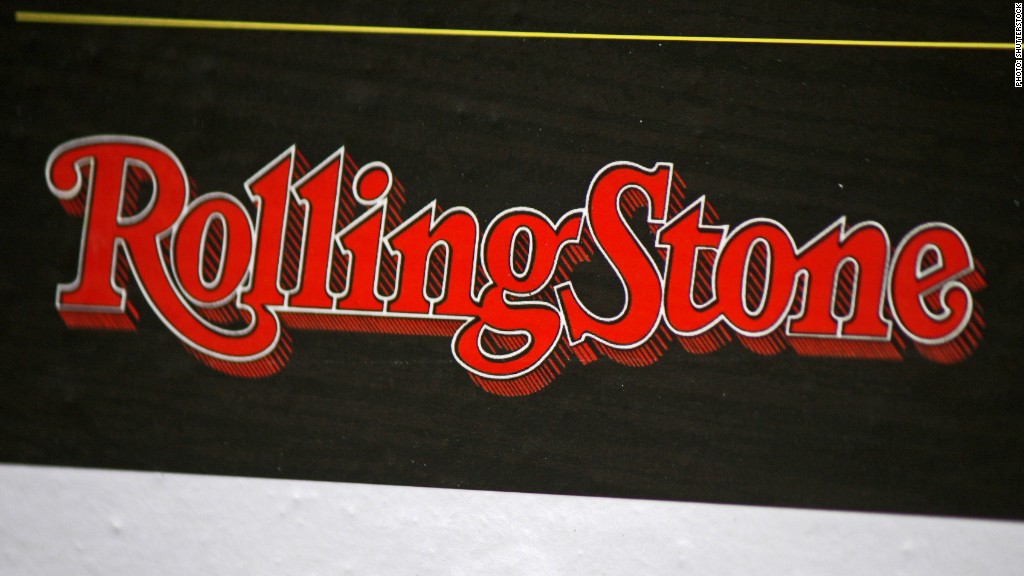
While every media outlet has some hits and some misses, Rolling Stone's most recent miss -- its "Rape on Campus" exposé last month --has been devastating.
Media critics and news organizations have identified discrepancies with the 9,000-word article about an alleged gang rape at the University of Virginia. The victim, Jackie, described the rape in detail, and Rolling Stone agreed not to contact the alleged rapists.
On Friday the magazine acknowledged "doubts about her narrative," said "we were mistaken in honoring Jackie's request to not contact the alleged assaulters to get their account," and apologized.
Amid an internal review, there is speculation that some staffers may lose their jobs.
The missteps in this case were all the more glaring because the pioneering magazine has had so many hits.
Some non-readers think it's just about music and pop culture. But since its first issue in 1967, Rolling Stone has published in-depth and in many cases award-winning journalism on subjects ranging from the CIA and the media to American fast food consumption to the post-9/11 U.S. military.
Its pages have featured famed bylines like P.J. O'Rourke and Hunter S. Thompson and given a home to muckraking reporting.
The magazine earned the American Society of Magazine Editors' award for general excellence in both 1998 and 2007.
In 1986, the magazine picked up one of the society's reporting awards for David Black's "The Plague Years," a two-part story on the emerging AIDS epidemic.
The magazine also won reporting awards in 1998, 2004, and 2006.
In recent years, writer Matt Taibbi has received widespread attention for his penetrating critiques of Wall Street, the global banking system and government. To some, these caustic pieces have been misses, but to many others, they have been hits.
Taibbi's "The Great American Bubble," for instance, sent shock waves through Wall Street for Taibbi's vivid description of the investment bank Goldman Sachs as a "great vampire squid wrapped around the face of humanity."
Related: Rolling Stone apologizes for rape article: What now?
Not long after, Michael Hastings' bombshell profile of U.S. Army General Stanley McChrystal -- "The Runaway General" -- ultimately led to the resignation of McChrystal, who was then the commander of allied forces in Afghanistan.
In the story, the general made critical comments about Vice President Biden and the Obama administration. Hastings' use of potentially "off the record" quotes was debated by some, but there was no debating the story's impact.
Now with the University of Virginia article, Rolling Stone finds itself dealing with another controversy -- seemingly of its own making.
Taibbi, who recently returned to Rolling Stone, wrote on Twitter on Saturday that "like everyone else at the magazine, I'm both mortified and sorry -- for the public, for anyone affected, and for the source herself."
He said that the missteps associated with the article "did not involve the fact-checking department."
"It usually takes longer to fact-check a Rolling Stone feature than it does to write it," Taibbi tweeted.
On Monday, a Rolling Stone spokeswoman said that the magazine's investigation into the "Rape on Campus" story was continuing and had no further comment.
Margaret Sullivan, the public editor for The New York Times, wrote in a Monday blog post that "Rolling Stone has published important work for many years."
She recommended "self-examination and transparency," following the lead of other news outlets, like The Times, that have recovered from journalistic lapses.
Sullivan wrote, "I hope that the magazine will thoroughly investigate what happened, publish that investigation and tell its readers how, precisely, editors will make sure it never happens again."


